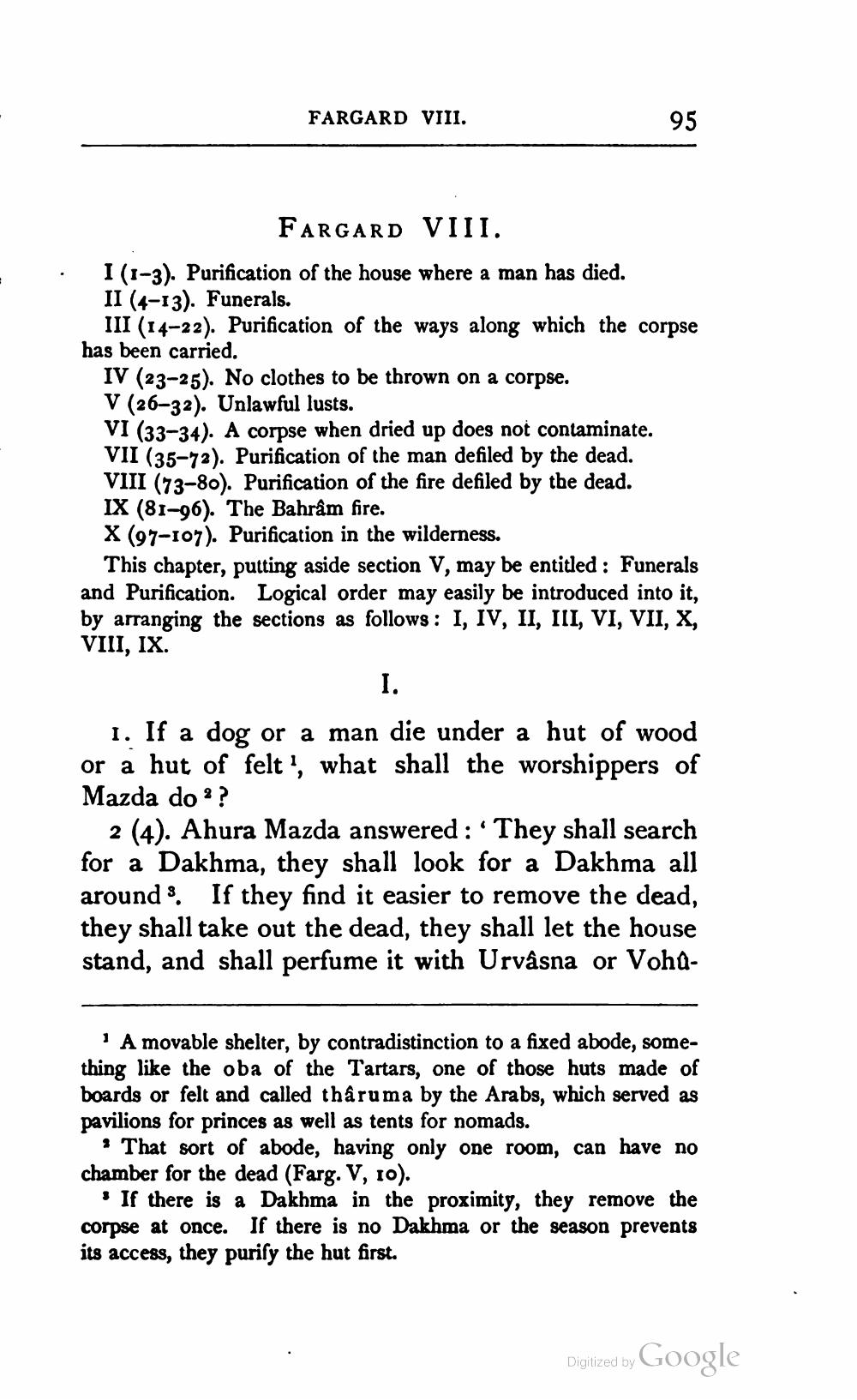________________
FARGARD VIII.
FARGARD VIII.
I (1-3). Purification of the house where a man has died. II (4-13). Funerals.
III (14-22). Purification of the ways along which the corpse has been carried.
IV (23-25). No clothes to be thrown on a corpse.
V (26-32). Unlawful lusts.
VI (33-34). A corpse when dried up does not contaminate.
VII (35-72). Purification of the man defiled by the dead. VIII (73-80). Purification of the fire defiled by the dead. IX (81-96). The Bahrâm fire.
X (97-107). Purification in the wilderness.
95
This chapter, putting aside section V, may be entitled: Funerals and Purification. Logical order may easily be introduced into it, by arranging the sections as follows: I, IV, II, III, VI, VII, X, VIII, IX.
I.
1. If a dog or a man die under a hut of wood or a hut of felt ', what shall the worshippers of Mazda do ??
2 (4). Ahura Mazda answered: 'They shall search for a Dakhma, they shall look for a Dakhma all around 3. If they find it easier to remove the dead, they shall take out the dead, they shall let the house stand, and shall perfume it with Urvâsna or Vohû
1 A movable shelter, by contradistinction to a fixed abode, something like the oba of the Tartars, one of those huts made of boards or felt and called thâruma by the Arabs, which served as pavilions for princes as well as tents for nomads.
That sort of abode, having only one room, can have no chamber for the dead (Farg. V, 10).
If there is a Dakhma in the proximity, they remove the corpse at once. If there is no Dakhma or the season prevents its access, they purify the hut first.
Digitized by
Google




